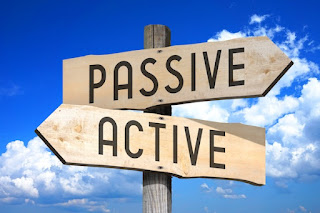Reading has changed my life.It’s a friend that always picks up.It’s an escape hatch on the afternoons when my mind is heavy with worry.It’s a mirror to look within myself when my awareness is lacking.It’s a time-machine that lets me read the thoughts of those that lived before me.It’s a teacher that teaches me how to live fuller and love harder and speak kinder and be easier (on both myself and others).It’s a luxury, perhaps one of the only luxuries, that doesn’t cost a fortune.
Read, read, read. Read everything — trash, classics, good and bad, and see how they do it. Just like a carpenter who works as an apprentice and studies the master. Read! You’ll absorb it.
Reading is to the mind what exercise is to the body.
Annie Proulx:
You should write because you love the shape of stories and sentences and the creation of different words on a page. Writing comes from reading, and reading is the finest teacher of how to write.
Jan Fortune:
Reading not only expands your imagination, vocabulary and empathy but also your ability to reshape your writing in unexpected ways.
Maya Angelou:
When I look back, I am so impressed again with the life-giving power of literature. If I were a young person today, trying to gain a sense of myself in the world, I would do that again by reading, just as I did when I was young.
You can't replace reading with other sources of information like videos, because you need to read in order to write well, and you need to write in order to think well.
The real importance of reading is that it creates an ease and intimacy with the process of writing; one comes to the country of the writer with one's papers and identification pretty much in order. Constant reading will pull you into a place (a mind-set, if you like the phrase) where you can write eagerly and without self-consciousness. It also offers you a constantly growing knowledge of what has been done and what hasn't, what is trite and what is fresh, what works and what just lies there dying (or dead) on the page. The more you read, the less apt you are to make a fool of yourself with your pen or word processor.
André Maurois:
Writing is a difficult trade which must be learned slowly by reading great authors; by trying at the outset to imitate them; by daring then to be original and by destroying one's first productions.
Mark Twain
The man who does not read good books is no better than the man who can’t.
Roald Dahl
If you are going to get anywhere in life you have to read a lot of books.
The best way to learn to write is by reading. Reading critically, noticing paragraphs that get the job done, how your favorite writers use verbs, all the useful techniques. A scene catches you? Go back and study it. Find out how it works.
One sure window into a person’s soul is his reading list.
Madeleine L'Engle:
You can't be a writer if you're not a reader. It's the great writers who teach us how to write.
Read a thousand books, and your words will flow like a river.
Daniel Pinkwater:
Read a lot. Write a lot. Have fun.
Ernest Gaines:
The Six Golden Rules of Writing: Read, read, read, and write, write, write.
What book are you currently reading?







